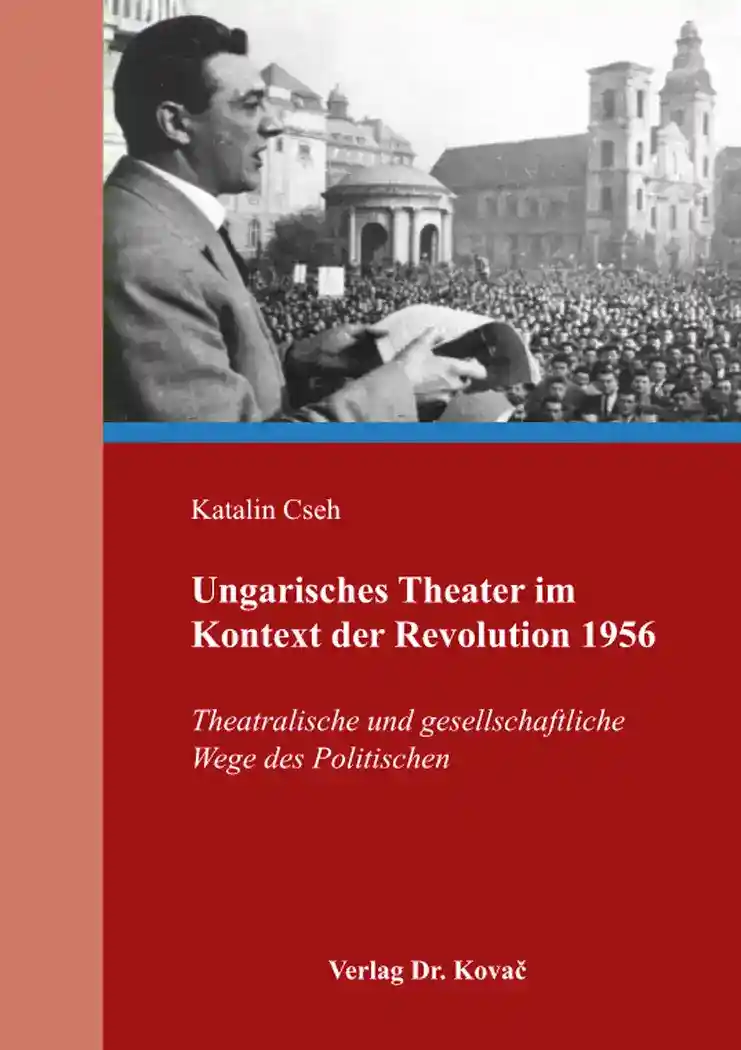About this book deutschenglish
The Hungarian theatre of the early 1950s stood on the borderline of the political and social, framed by the tense context of the Stalinist and Post-Stalinist era. With the nationalization of theatre (1949) schematization and standardization of dramatic had begun in a large measure. This went hand in hand with a stylization and distortion of the socialistic theatre theory, which often ended in empty propaganda-plays and phrases. Only political changes in 1953 (just like the death of Stalin, the XX. congress of the Communist Party of the Soviet Union and a new platform of the Hungarian government) introduced an ideological “relaxation”, which extended to society, politics, economics and to art.
The book focuses mainly on the period after 1953 and tries to reveal the democratic-expressive attitude of the Hungarian theatre to the revolution of 1956. The changes in the theatrical sphere – in theatre theory and dramaturgical discussions, in dramas, the destiny of actors and actresses – found their culmination in the revolution, in the realization of a (“national”) democracy.
On the basis of the political – developed by the new discourse theory – and the truth – as an elementary wish of the society of the age – contemporary Hungarian dramas of Gyula Illyés, László Németh, József Gáli, Zsigmond Remenyik and Erno Urbán and their performances are analysed, because they convey the spirit of the mentioned social transformations.
The days of the revolution in Budapest are reconstructed from a theatre historical perspective through the research of the activity of different actors – both in- and outside of theatre buildings. The reconstruction includes the personal life of chosen actors, playwrights and the analysis of the sessions in “revolutionary theatre councils” until these democratic dreams on 4th November 1956 came to end.
It is shown how and to what extent theatre could become a part of democratic-expressive discourses and how it could have a political effect on the audience and how it could communicate several alternatives on the notion of truth. This book is trying to give a better picture of theatre – as a media of exchange between art and society – in this historical environment of heterogeneity and contradictions, in a theatre-scientific and political respect.
Ihr Werk im Verlag Dr. Kovač
